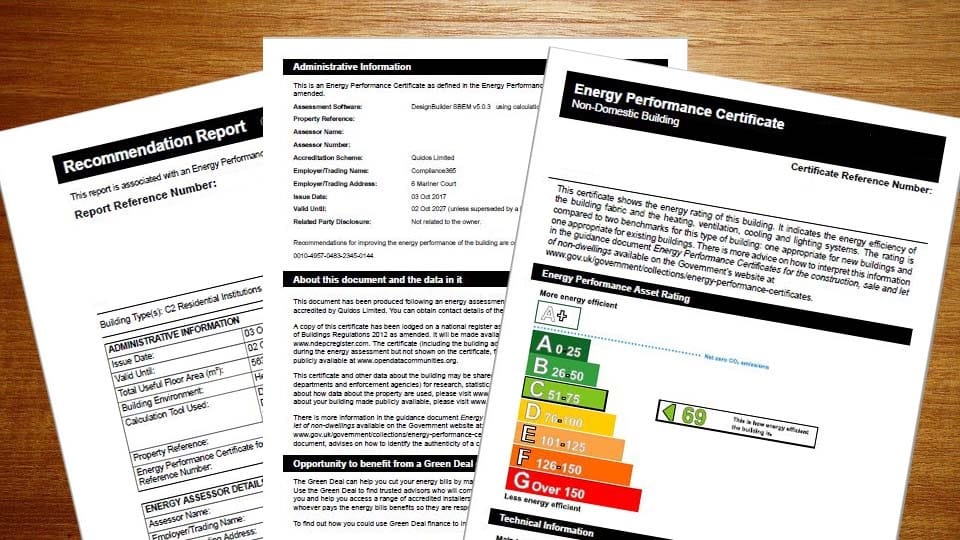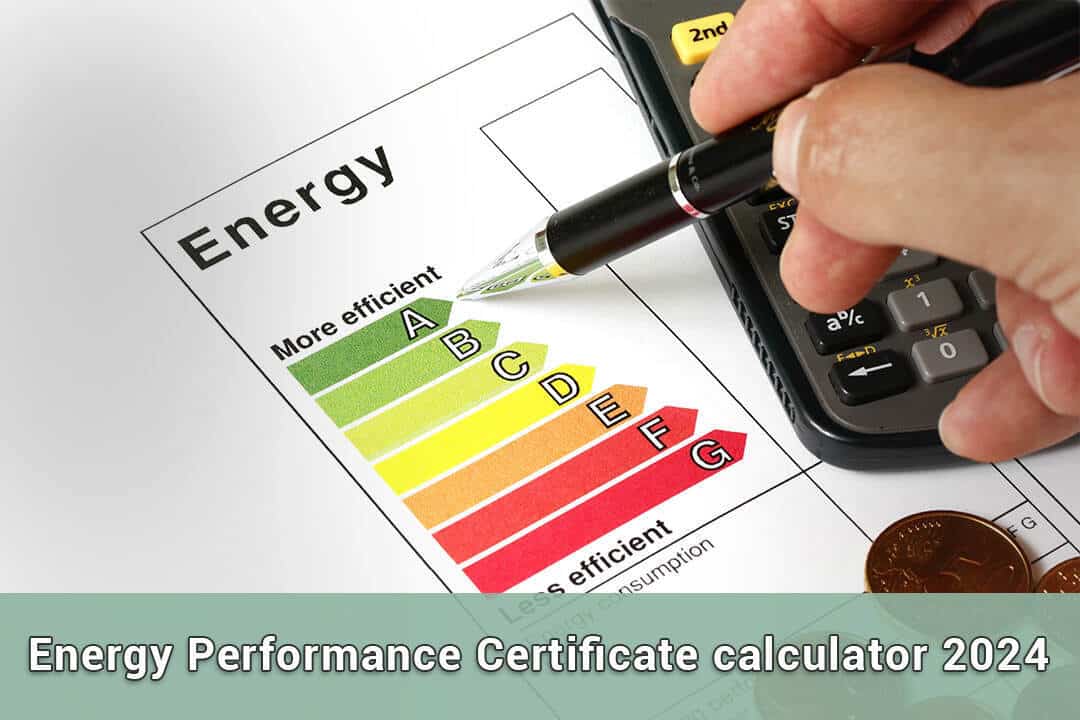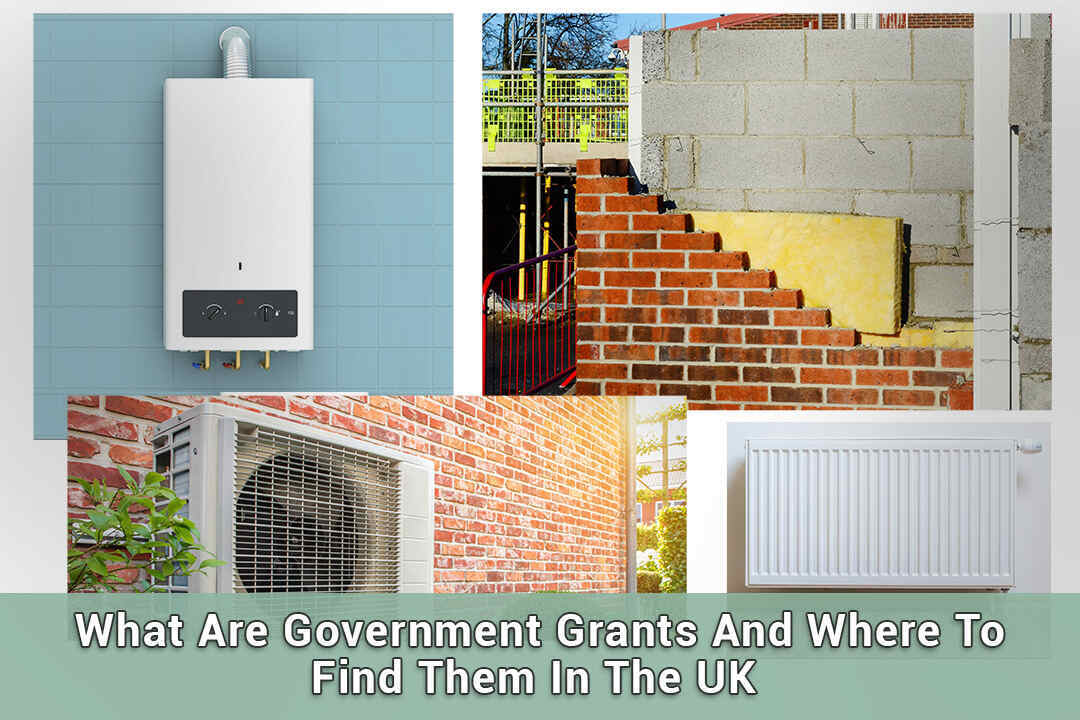Table of Contents
In the United Kingdom, you will need an Energy Performance Certificate or EPC rating anytime you purchase, sell, or rent a home. This is a report card that shows how energy-efficient your household is. This helps you figure out how much it will cost to power the building. An A rating is the most efficient, and a G rating is the least efficient. The EPC report also provides recommendations for improving the property’s energy efficiency, which can save you money on your utility bills. So how do assessors arrive at this rating? Let’s find out.
We’ll look at how the UK calculates EPCs, including the criteria and techniques for improving your property’s rating.
Who Can Calculate An EPC?
In the United Kingdom, professional assessors perform EPC ratings. They check the property’s kind (home, flat, etc.), age, size, and location. Next, they also assess the building’s energy use and any changes done to improve its energy efficiency. The rating they offer you is valid for ten years, so unless you make significant alterations to the property, you will not need a new one.
How Is An EPC Calculated?
A unique method known as the Standard Assessment Method (SAM) rates a building’s energy efficiency. SAM examines multiple features of the building. This covers its construction quality, size and shape, user experience, and heating system. It even monitors the windows and insulation to see how effectively they trap heat. SAM rates this data from A (extremely energy-efficient) to G (not very efficient). This grade helps you decide how much energy the building may use.
Assessing the Property
The EPC rating assesses a property efficiency, similar to a warm winter clothing item. Assessors look at how heat flows through the building’s elements to conclude. They inspect both the insulation levels and the relevant materials. The building’s size and design are also essential, as a larger property with more windows will naturally lose heat. This all helps figure out how energy-efficient the structure is.
Evaluating the inner side of the building
Assessors then look into the building’s “inner workings.” They look for air leaks, which cause drafts and heat loss. Ventilation is also significant since it impacts moisture levels and indoor air quality. They also consider lighting, which impacts both heating costs and the carbon footprint.
Finally, assessors hunt for renewable energy sources, such as solar panels or wind turbines, that can power the building. Moreover, they use all of this data to calculate a final EPC result, which ranges from A (very efficient) to G (not very efficient). This rating helps you understand how beneficial to the environment the building is.
Issuance of EPC Certificate

Following the EPC survey, assessors find your building’s energy performance and generate an EPC Certificate. Within two days after the visit, the assessor electronically sends this certificate to the government record. You will also receive a copy via email. The certificate also includes advice for making your building more energy-efficient!
Factors Affecting Energy Performance Certificate 2024
If you want to apply for Energy Performance Certificate 2004, look at the factors affecting it. Undeniably, the cost of an EPC varies depending on many different things. Here are some factors that can affect the cost:
- Property size: Larger buildings often cost more to assess.
- Location: Assessors may charge greater fees in cities due to increased business costs.
- Type of property: Complex buildings, such as factories, may take more assessor time.
- Assessor fees: Rates may vary amongst assessors. It pays to compare rates!
- Complexity of energy systems: A simple heating system is easier to analyze than an advanced geothermal setup.
- Level of detail required: A basic EPC may be less expensive than a more complete one.
What Are Energy Performance Bands?
Your EPC comes with a score, much like a letter grade! This score is based on a color-coded band system, with A (dark green) being the most efficient and G (red) representing the least efficient. Now, there are seven bands in all, with the majority of homes in England and Wales land around D. These certificates only last ten years, therefore yearly revisions guarantee that the band matches the building’s current condition. This banding method helps prospective buyers or tenants learn how energy-efficient their future home may be.
Consider your EPC rating as a score! Assessors evaluate multiple parts of your property, such as insulation and heating, and assign points based on their efficiency. The more points a building receives, the higher its rating (A represents the most efficient). This rating explains how energy-efficient the building is.
SAP Points | EPC Rating |
92-100 SAP Points | A |
81-91 SAP Points | B |
69-80 SAP Points | C |
55-68 SAP Points | D |
39-54 SAP Points | E |
21-38 SAP Points | F |
1-20 SAP Points | G |
After the points and EPC rating have been computed, you will receive an energy performance certificate. This will offer you both an EPC rating and an environmental impact rating.
Which Buildings Do Not Need an EPC?
Here’s a breakdown of properties that don’t require an EPC rating, written in simple and easy language:
- Places of worship: Churches, mosques, temples, and other religious buildings don’t need an EPC.
- Tiny buildings (under 50sqm): Very small buildings, like tool sheds or kiosks, don’t require an EPC.
- Buildings slated for demolition: If a building is approved to be torn down, it typically doesn’t need an EPC.
- Temporary buildings (under 2 years): Portable cabins, sheds, or structures meant to last less than 2 years are exempt.
- Holiday rentals (less than 4 months): Properties rented out for vacations less than 4 months a year don’t require an EPC.
- Low-energy industrial buildings: Warehouses or workshops that use little energy for heating or cooling are exempt.
- Rarely used residences (under 4 months): Homes used less than 4 months a year, like vacation cabins, generally don’t need an EPC.
- Listed buildings (consult your local authority): Historic buildings with special protections might be exempt, but check with your local government first.
Frequently Asked Questions
What is an EPC?
An EPC is a document that evaluates a property’s energy usage and environmental effect.
How long does an EPC last?
EPC Rating are valid for ten years.
How do I get an EPC?
Find a domestic energy assessor to survey your home. The survey takes 45 minutes to an hour. Then, ask for the Energy Performance Certificate to be emailed to you.
Where is an EPC required?
EPCs are required for homes being purchased, rented, or built.
What defines the expected EPC costs?
EPC prices vary depending on the energy system’s size, nature, location, and complexity.
How can EPCs help homeowners?
EPCs provide information on energy efficiency, allowing homeowners to make informed decisions about energy-saving upgrades and potentially lower power bills.







